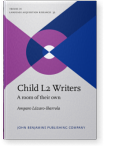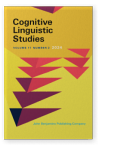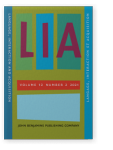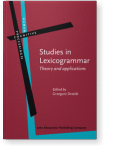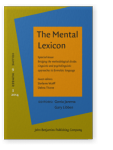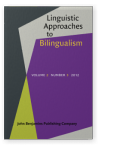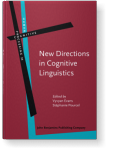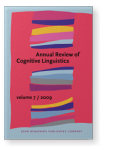Ewa Dąbrowska
List of John Benjamins publications for which Ewa Dąbrowska plays a role.
Book series
Journal
ISSN 2213-8722 | E-ISSN 2213-8730
2021 The development of morpho-syntactic productivity in Italian-speaking children Language, Interaction and Acquisition 12:2, pp. 185–209 | Article
According to usage-based models of language acquisition, young children’s grammatical knowledge is best described in terms of lexically specific templates rather than abstract constructions. In this study, we tested the usage-based account by examining the acquisition of Italian, a language with… read more
2016 Looking into introspection Studies in Lexicogrammar: Theory and applications, Drożdż, Grzegorz (ed.), pp. 55–74 | Article
Introspective judgments are often used in linguistics to obtain information about speakers’ mental representations of language. This chapter addresses two questions, namely: what shapes speakers’ judgments, and what such judgments provide information about. I argue that speakers’ judgments are… read more
2014 Words that go together: Measuring individual differences in native speakers’ knowledge of collocations Bridging the Methodological Divide: Linguistic and psycholinguistic approaches to formulaic language, Wulff, Stefanie and Debra Titone (eds.), pp. 401–418 | Article
Although formulaic language has been studied extensively from both a linguistic and psycholinguistic perspective, little is known about the relationship between individual speakers’ knowledge of collocations and their linguistic experience, or between collocational knowledge and other aspects of… read more
2012 Different speakers, different grammars: Individual differences in native language attainment Epistemological issue with keynote article “Different speakers, different grammars: Individual differences in native language attainment” by Ewa Dabrowska, pp. 219–253 | Article
This article reviews several recent studies suggesting that — contrary to a widespread belief — adult monolingual native speakers of the same language do not share the same mental grammar. The studies examined various aspects of linguistic knowledge, including inflectional morphology, passives,… read more
2009 Words as constructions New Directions in Cognitive Linguistics, Evans, Vyvyan and Stéphanie Pourcel (eds.), pp. 201–223 | Article
2009 Constructing a Second Language: Some final thoughts Annual Review of Cognitive Linguistics: Volume 7, Ruiz de Mendoza Ibáñez, Francisco José (ed.), pp. 277–290 | Article
All the papers in this special section address issues central to cognitive linguistics research: usage-based models with their focus on frequency; multi-word units and the relationship between lexical and grammatical knowledge; and the nature of lexical meaning, especially construal or “thinking… read more

